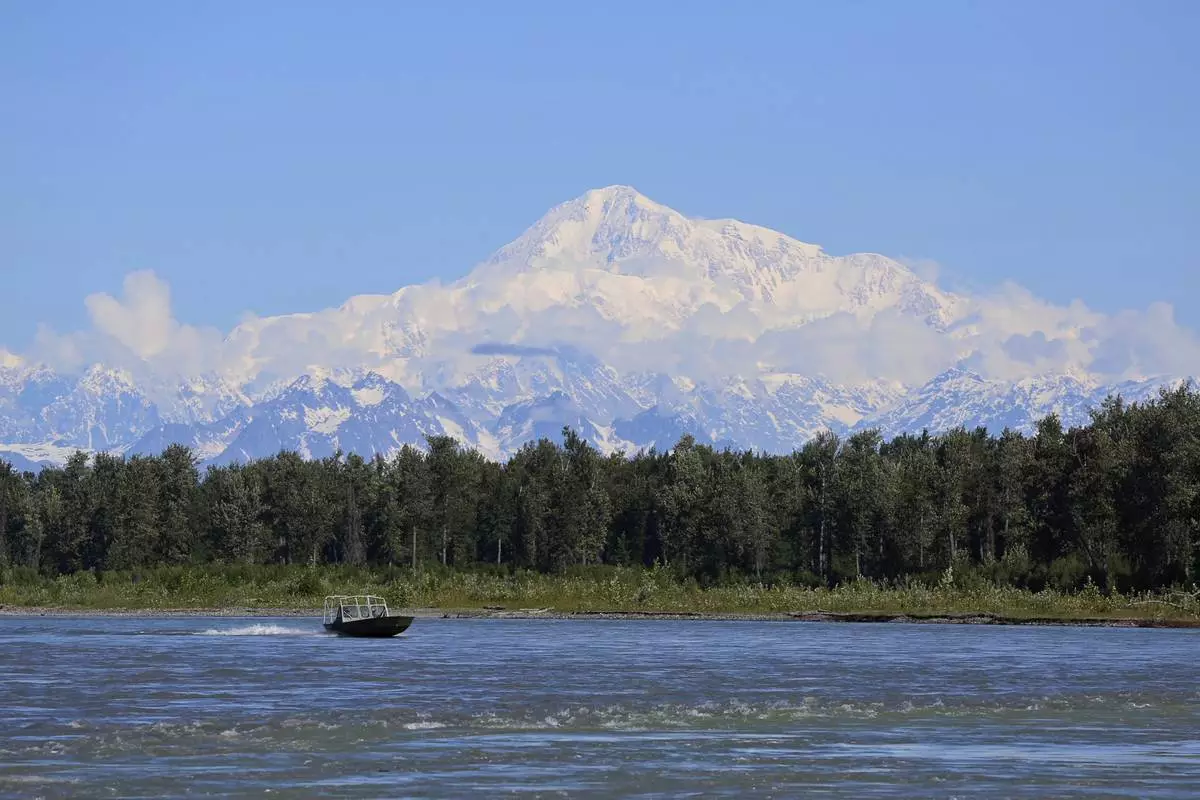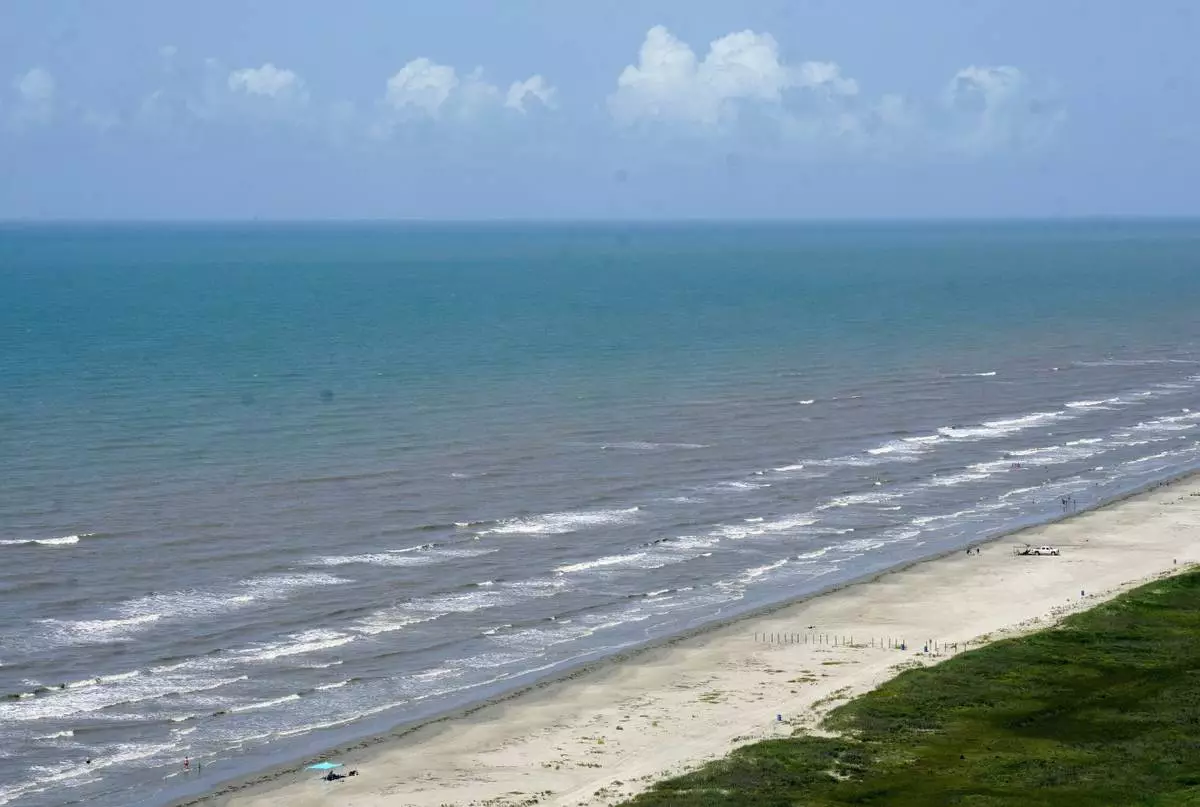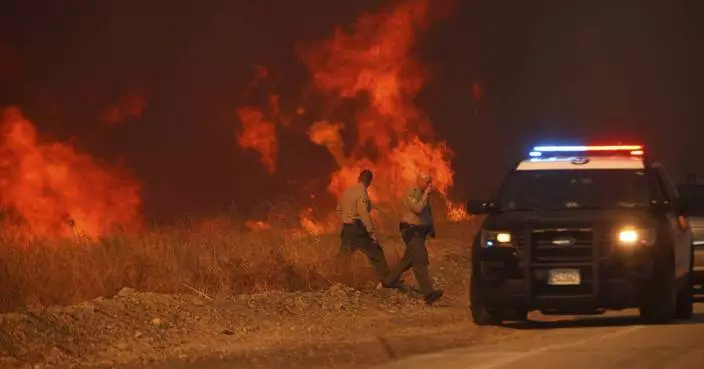NEW YORK (AP) — Edna O'Brien, Ireland's literary pride and outlaw who scandalized her native land with her debut novel “The Country Girls” before gaining international acclaim as a storyteller and iconoclast that found her welcomed everywhere from Dublin to the White House, has died. She was 93.
O'Brien died Saturday after a long illness, according to a statement by her publisher Faber and the literary agency PFD.
“A defiant and courageous spirit, Edna constantly strove to break new artistic ground, to write truthfully, from a place of deep feeling,” Faber said in a statement. “The vitality of her prose was a mirror of her zest for life: she was the very best company, kind, generous, mischievous, brave.” She is survived by her sons, Marcus and Carlos.
O'Brien published more than 20 books, most of them novels and story collections, and would know fully what she called the “extremities of joy and sorrow, love, crossed love and unrequited love, success and failure, fame and slaughter.” Few so concretely and poetically challenged Ireland's religious, sexual and gender boundaries. Few wrote so fiercely, so sensually about loneliness, rebellion, desire and persecution.
"O’Brien is attracted to taboos just as they break, to the place of greatest heat and darkness and, you might even say, danger to her mortal soul," Booker Prize winner Anne Enright wrote of her in the Guardian in 2012.
A world traveler in mind and body, O'Brien was as likely to imagine the longings of an Irish nun as to take in a man's “boyish smile” in the midst of a “ponderous London club." She befriended movie stars and heads of states while also writing sympathetically about Sinn Féin leader Gerry Adams and meeting with female farm workers in Nigeria who feared abduction by Boko Haram.
O'Brien was an unknown about to turn 30, living with her husband and two small children outside of London, when “The Country Girls” made her Ireland’s most notorious exile since James Joyce. Written in just three weeks and published in 1960, for an advance of roughly $75, “The Country Girls” follows the lives of two young women: Caithleen (Kate) Brady and Bridget (Baba) Brennan journey from a rural convent to the risks and adventures of Dublin. Admirers were as caught up in their defiance and awakening as would-be censors were enraged by such passages as “He opened his braces and let his trousers slip down around the ankles” and “He patted my knees with his other hand. I was excited and warm and violent."
Fame, wanted or otherwise, was O'Brien's ever after. Her novel was praised and purchased in London and New York while back in Ireland it was labeled “filth" by Minister of Justice Charles Haughey and burned publicly in O'Brien's hometown of Tuamgraney, County Clare. Detractors also included O'Brien's parents and her husband, the author Ernest Gebler, from whom O'Brien was already becoming estranged.
“I had left the spare copy on the hall table for my husband to read, should he wish, and one morning he surprised me by appearing quite early in the doorway of the kitchen, the manuscript in his hand,” she wrote in her memoir “Country Girl,” published in 2012. “He had read it. Yes, he had to concede that despite everything, I had done it, and then he said something that was the death knell of the already ailing marriage — ‘You can write and I will never forgive you.’”
She continued the stories of Kate and Baba in “The Lonely Girl” and “Girls in Their Married Bliss” and by the mid-1960s was single and enjoying the prime of “Swinging London”: whether socializing with Princess Margaret and Marianne Faithfull, or having a fling with actor Robert Mitchum (“I bet you never tasted white peaches,” he said upon meeting her). Another night, she was escorted home by Paul McCartney, who asked to see her children, picked up her son’s guitar and improvised a song that included the lines about O’Brien “She’ll have you sighing/She’ll have you crying/Hey/She’ll blow your mind away.”
Enright would call O’Brien “the first Irish woman ever to have sex. For some decades, indeed, she was the only Irish woman to have had sex — the rest just had children.”
O’Brien was recognized well beyond the world of books. The 1980s British band Dexy’s Midnight Runners” named her alongside Eugene O’Neill, Samuel Beckett and Oscar Wilde among others in the literary tribute “Burn It Down.” She dined at the White House with then-first lady Hillary Rodham Clinton and Jack Nicholson, and she befriended Jacqueline Kennedy, whom O’Brien remembered as a “creature of paradoxes. While being private and immured she also had a hunger for intimacy — it was as if the barriers she had put up needed at times to be battered down.”
O’Brien related well to Kennedy’s reticence, and longing. The literary world gossiped about the author’s love life, but O’Brien’s deepest existence was on the page, from addressing a present that seemed without boundaries (“She longed to be free and young and naked with all the men in the world making her love to her, all at once,” one of her characters thinks) to sorting out a past that seemed all boundaries — “the don’ts and the don’ts and the don’ts.”
In her story “The Love Object,” the narrator confronts her lust, and love, for an adulterous family man who need only say her name to make her legs tremble. “Long Distance” arrives at the end of an affair as a man and woman struggle to recapture their feelings for each other, haunted by grudges and mistrust.
“Love, she thought, is like nature but in reverse; first it fruits, then it flowers, then it seems to wither, then it goes deep, deep down into its burrow, where no one sees it, where it is lost from sight and ultimately people die with that secret buried inside their souls,” O’Brien wrote.
“A Scandalous Woman” follows the stifling of a lively young Irish nonconformist — part of that “small solidarity of scandalous women who had conceived children without securing fathers” — and ends with O’Brien’s condemning her country as a “land of shame, a land of murder and a land of strange sacrificial women.” In “My Two Mothers,” the narrator prays for the chance to “begin our journey all over again, to live our lives as they should have been lived, happy, trusting, and free of shame.”
O’Brien’s other books included the erotic novel “August Is a Wicked Month,” which drew upon her time with Mitchum and was banned in parts of Ireland; “Down By The River,” based on a true story about a teenage Irish girl who becomes pregnant after being raped by her father, and the autobiographical “The Light of Evening,” in which a famous author returns to Ireland to see her ailing mother. “Girl,” a novel about victims of Boko Haram, came out in 2019.
O’Brien is among the most notable authors never to win the Nobel or even the Booker Prize. Her honors did include an Irish Book Award for lifetime achievement, the PEN/Nabokov prize and the Frank O’Connor award in 2011 for her story collection “Saints and Sinners,” for which she was praised by poet and award judge Thomas McCarthy as “the one who kept speaking when everyone else stopped talking about being an Irish woman.”
Josephine Edna O’Brien was one of four children raised on a farm where “the relics of riches remained. It was a life full of contradictions. We had an avenue, but it was full of potholes; there was a gatehouse, but another couple lived there.” Her father was a violent alcoholic, her mother a talented letter writer who disapproved of her daughter’s profession, possibly out of jealousy. Lena O’Brien’s hold on her daughter’s imagination, the force of her regrets, made her a lifelong muse and a near stand-in Ireland itself, “the cupboard with all things in it, the tabernacle with God in it, the lake with the legends in it.”
Like Kate and Baba in “The Country Girls,” O’Brien was educated in part at a convent, “dour years” made feverish by a disorienting crush she developed on one of the nuns. Language, too, was a temptation, and signpost, like the words she came upon on the back of her prayer book: “Lord, rebuke me not in thy wraith, neither chasten me in thy hot displeasure.”
“What did it mean?” she remembered thinking. “It didn’t matter what it meant. It would carry me through lessons and theorems and soggy meat and cabbage, because now, in secret, I had been drawn into the wild heart of things.”
By her early 20s, she was working in a pharmacy in Dublin and reading Tolstoy and Thackeray among others in her spare time. She had dreams of writing since sneaking out to nearby fields as a child to work on stories, but doubted the relevance of her life until she read a Joyce anthology and learned that “Portrait of the Artist as a Young Man” was autobiographical. She began writing fiction that ran in the literary magazine The Bell and found work reviewing manuscripts for the publishing house Hutchinson, where editors were impressed enough by her summaries to commission what became “The Country Girls.”
“I cried a lot writing ‘The Country Girls,’ but scarcely noticed the tears. Anyhow, they were good tears. They touched on feelings that I did not know I had. Before my eyes, infinitely clear, came that former world in which I believed our fields and hollows had some old music slumbering in them, centuries old,” she wrote in her memoir.
“The words poured out of me, and the pen above the paper was not moving fast enough, so that I sometimes feared they would be lost forever.”

FILE - Edna O'Brien attends the Broadway opening of "Breakfast at Tiffany's" on Wednesday, March 20, 2013 in New York. O’Brien, one of the world’s most admired and controversial writers who scandalized her native Ireland with her debut novel, “The Country Girls,” died Saturday, July 27, 2024, at age 93. (Photo by Charles Sykes/Invision/AP, File)

























































